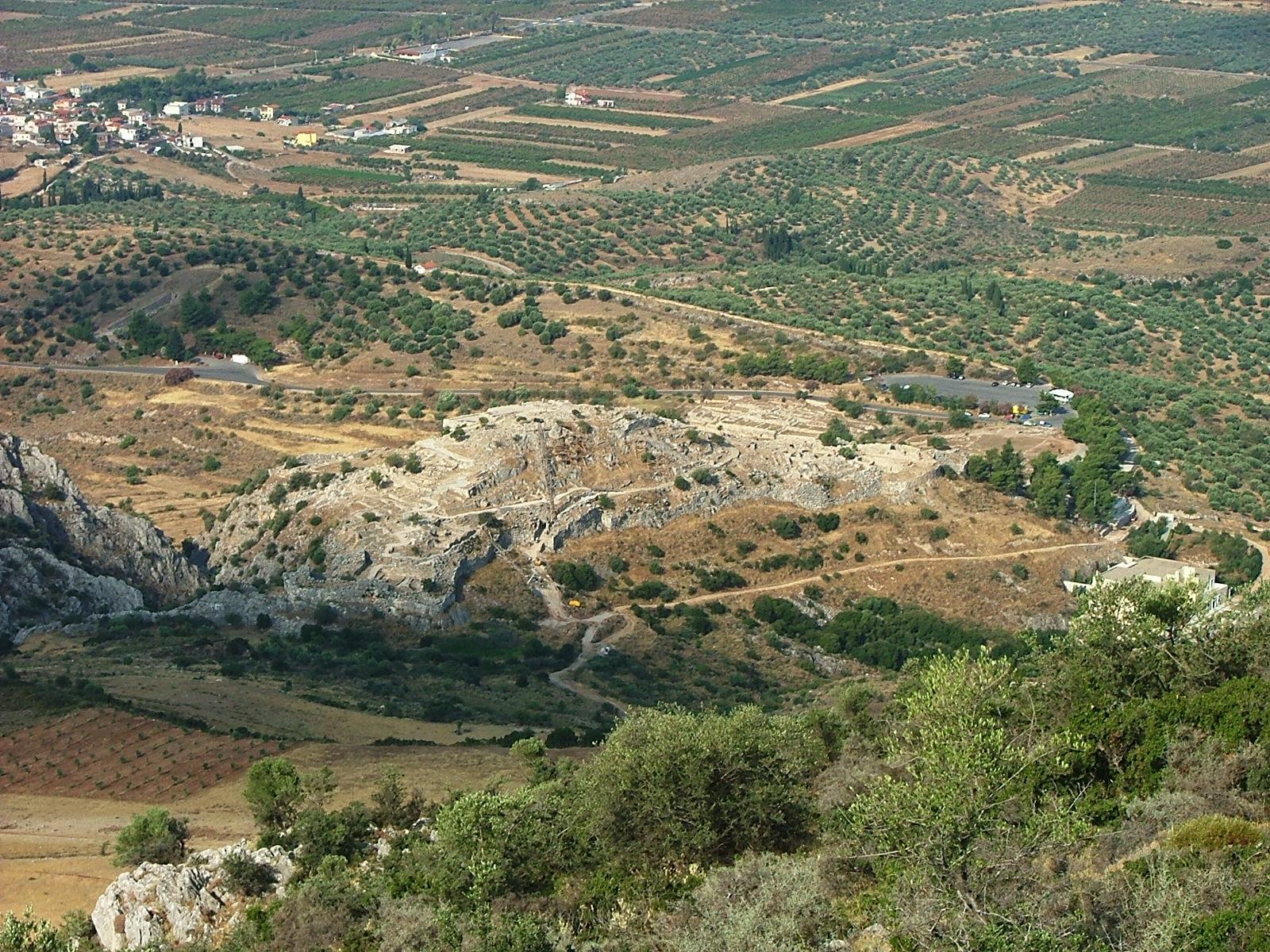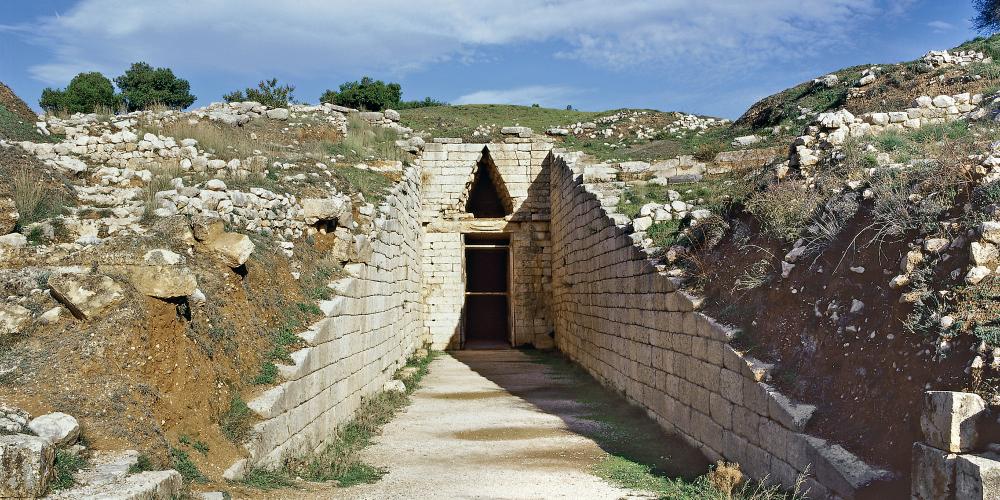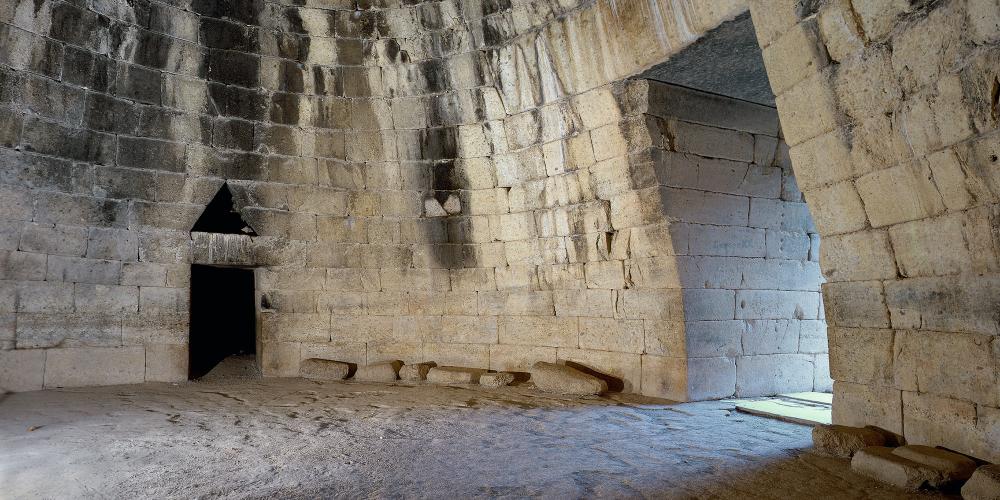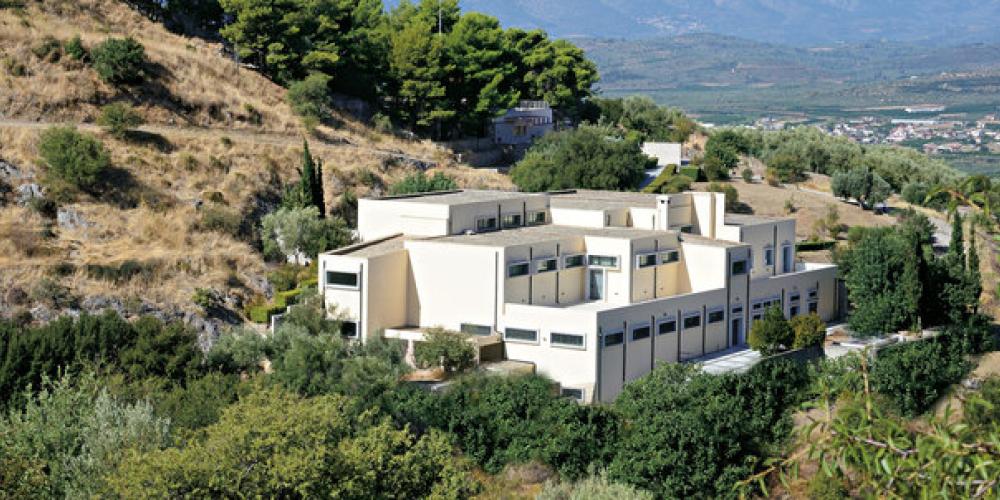The Archaeological Site of Mycenae

Its name was given to one of the greatest civilisations of Greek prehistory, the Mycenaean civilisation. The site, which is inscribed in the World Heritage List since 1999, preserves the imposing ruins of the city that dominated the eastern Mediterranean world from the 15th to the 12th century B.C. and played a vital role in the development of classical Greek culture. Mycenae was founded between two tall conical hills, Profitis Ilias and Sara, on a low plateau dominating the Argive plain and controlling both the land and sea routes.

The archaeological site comprises the fortified acropolis and the surrounding funerary and habitation sites, which are located mainly to its west and southwest. Most of the visible monuments date to the centre's great prosperity period, from 1350 to 1200 BC.
At the foot of the acropolis is situated the Archaeological Museum of Mycenae, a modern masterpiece for the area and an attraction point for thousands of tourists, who come to this sacred place to admire part of the findings of "Atrides’ treasure". The exhibits (almost 2,500) are dated from the Middle Bronze Age to the Hellenistic Period and come from Mycenae and its surrounding area.
Downloads
The Archaeological Site of Mycenae
Hours
08:00 - 15:00 (Winter season)
08:00 - 20.00 (Summer season)
For updated information, visit:
http://www.argolisculture.gr/en/
http://odysseus.culture.gr
Archaeological sites and Museums are closed on:
*1st of January
*25th of March
- Easter Day
*1st of May
*25th-26th of December
Τicket:
1.11.2017-31.3.2018: 6.00 € (reduced 6.00€)
1.4.2018-31.10.2018: 12.00 € (reduced 6.00€)
Ticket is valid for the Archaeological Site, the Museum and the Treasury of Atreus
Entrance is free for university students from EU and children below the age of 18
Days of free entrance:
28th of October, 6th of March, 18th of April, 18th of May, 5th of June, last weekend of September, first Sunday of every month from 1st of November until 31st of March.
Accessibility for disabled.
WC Disabled



